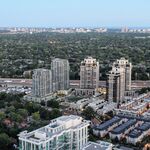cdr108
Senior Member
http://www.yourhome.ca/homes/article/652592
Greater Toronto housing unaffordable, survey shows
June 20, 2009
Stephen Dupuis
If you were asked to list off the top of your mind the world's most expensive housing markets, chances are you would come up with London, New York or Los Angeles, if not Paris, France or Dubai.
If you just did that exercise in your mind and came up with Vancouver, give yourself a small prize, because according to the fifth annual Demographia International Housing Affordability Survey, Vancouver is the fourth most unaffordable housing market among the 265 cities ranked from six countries (Australia, Canada, United States, New Zealand, United Kingdom and Ireland).
The way the survey works is by converting the median house price and the median income into a median multiple measure, essentially how many years income it would take to purchase the median priced house in a given market. Cities are then categorized as severely unaffordable, seriously unaffordable, moderately unaffordable or affordable.
In Vancouver, the median income of $58,400 and the median house price of $492,600 results in a median multiple measures of 8.4, meaning that one would have to work 8.4 years to achieve homeownership there. By comparison, in Youngstown, Ohio, the most affordable market surveyed, one would only have to work 1.8 years.
Outranking Vancouver on the dubious scale of severe un-affordability were Australia's Gold Coast at a median multiple of 8.7, Honolulu at 9.1 and the Sunshine Coast, Australia, at 9.6 times.
Demographia notes that as far as major markets go, Vancouver is tops, which on this listing is not a good thing.
Among Canadian cities joining Vancouver on the list of severely unaffordable cities were Victoria, B.C. (7.4 times), Kelowna, B.C. (6.8 times), and Abbotsford, B.C. (6.5 times).
As you would expect, London, New York and Los Angeles made the severely unaffordable list with median multiples of 6.9, 7.0 and 7.2 times respectively.
I know what you're thinking – how did Toronto (for survey purposes, Toronto means the Greater Toronto Area) compare? The good news is we're not severely unaffordable. The bad news is that with a median household income of $67,100 and a median house price of $324,700, we made the seriously unaffordable list, coming in at a median multiple of 4.8 times, tied with Calgary as it happens. Hamilton and Edmonton are the other Canadian cities on the severely unaffordable list.
The next breakdown on the survey is for moderately unaffordable markets with median multiples ranging between 3.0 and 4.0 and Ontario cities on that list include London, Brantford, Sudbury, Barrie, Guelph, Ottawa, Kingston and Kitchener.
As for affordable markets, overall there are 87 affordable markets, all of which are in North America. Canada had 10 cities on the list with the most affordable, ranking fifth among the 265 markets, being Cape Breton, at 2.1 times. Ontario cities making this list included Thunder Bay, Chatham and Windsor.
The Demographia survey had lots to say about the causes of housing affordability, which it links directly to the extent of land use regulation in a given market, but that's worth a column unto itself.
If you're really keen, you can go to demographia.com but please do not read anything into my own views based on the content at that site beyond the fact that I found the affordability survey results to be quite interesting.
Mea culpa: Thanks to the many readers who e-mailed me last week to say I had mixed up mortgagee and mortgagor. I won't make that mistake again thanks to the reader who suggested the memory aid, "the mortgagee is Simon Legree."
Stephen Dupuis is president and CEO of the Building Industry and Land Development Association. The views expressed are those of the president. Email: president@bildgta.ca.
Greater Toronto housing unaffordable, survey shows
June 20, 2009
Stephen Dupuis
If you were asked to list off the top of your mind the world's most expensive housing markets, chances are you would come up with London, New York or Los Angeles, if not Paris, France or Dubai.
If you just did that exercise in your mind and came up with Vancouver, give yourself a small prize, because according to the fifth annual Demographia International Housing Affordability Survey, Vancouver is the fourth most unaffordable housing market among the 265 cities ranked from six countries (Australia, Canada, United States, New Zealand, United Kingdom and Ireland).
The way the survey works is by converting the median house price and the median income into a median multiple measure, essentially how many years income it would take to purchase the median priced house in a given market. Cities are then categorized as severely unaffordable, seriously unaffordable, moderately unaffordable or affordable.
In Vancouver, the median income of $58,400 and the median house price of $492,600 results in a median multiple measures of 8.4, meaning that one would have to work 8.4 years to achieve homeownership there. By comparison, in Youngstown, Ohio, the most affordable market surveyed, one would only have to work 1.8 years.
Outranking Vancouver on the dubious scale of severe un-affordability were Australia's Gold Coast at a median multiple of 8.7, Honolulu at 9.1 and the Sunshine Coast, Australia, at 9.6 times.
Demographia notes that as far as major markets go, Vancouver is tops, which on this listing is not a good thing.
Among Canadian cities joining Vancouver on the list of severely unaffordable cities were Victoria, B.C. (7.4 times), Kelowna, B.C. (6.8 times), and Abbotsford, B.C. (6.5 times).
As you would expect, London, New York and Los Angeles made the severely unaffordable list with median multiples of 6.9, 7.0 and 7.2 times respectively.
I know what you're thinking – how did Toronto (for survey purposes, Toronto means the Greater Toronto Area) compare? The good news is we're not severely unaffordable. The bad news is that with a median household income of $67,100 and a median house price of $324,700, we made the seriously unaffordable list, coming in at a median multiple of 4.8 times, tied with Calgary as it happens. Hamilton and Edmonton are the other Canadian cities on the severely unaffordable list.
The next breakdown on the survey is for moderately unaffordable markets with median multiples ranging between 3.0 and 4.0 and Ontario cities on that list include London, Brantford, Sudbury, Barrie, Guelph, Ottawa, Kingston and Kitchener.
As for affordable markets, overall there are 87 affordable markets, all of which are in North America. Canada had 10 cities on the list with the most affordable, ranking fifth among the 265 markets, being Cape Breton, at 2.1 times. Ontario cities making this list included Thunder Bay, Chatham and Windsor.
The Demographia survey had lots to say about the causes of housing affordability, which it links directly to the extent of land use regulation in a given market, but that's worth a column unto itself.
If you're really keen, you can go to demographia.com but please do not read anything into my own views based on the content at that site beyond the fact that I found the affordability survey results to be quite interesting.
Mea culpa: Thanks to the many readers who e-mailed me last week to say I had mixed up mortgagee and mortgagor. I won't make that mistake again thanks to the reader who suggested the memory aid, "the mortgagee is Simon Legree."
Stephen Dupuis is president and CEO of the Building Industry and Land Development Association. The views expressed are those of the president. Email: president@bildgta.ca.




